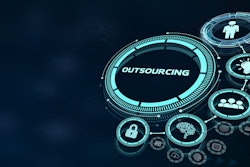
Very little has been certain in the unpredictable logistics world of recent years, but here’s one thing that isn’t going to change: Having a data-driven supply chain strategy is essential. According to our recent KPI research study of nearly 1,000 shippers, 83% of them agree that KPIs are an essential part of sound supply chain strategy.
But knowing you need to get the most out of your data is very different from having the resources to actually do it.
Knowing is one thing. Doing is another.
70% of those same shippers agree that turning supply chain data into actionable insights is both challenging and time-consuming. Even fewer believe they’re currently thriving at it.
Only 40% think they’re experts at tracking supply chain data, and only 36% consider themselves experts at acting on that data. The rest see room for improvement. It can be very difficult to build logistics management capabilities internally, especially if you’re starting from scratch. Knowing who to hire, where to invest and what processes to put in place can become a draining process of trial and error.
But there’s an alternative: outsourcing logistics is a cost-effective way to bolster your supply chain performance quickly and with impact.
Thinking about outsourcing logistics KPIs? You’re not alone
I get it: Outsourcing is a tough choice for any business in any situation. You want to be sure you’re getting a return that justifies your investment, and you always need to consider whether there are long-term cost savings to be found in building internally instead. When weighing my options for a business decision this important, I find it extremely helpful to know what my peers are doing.
If you want to do the same, here are the stats you need:
- On average, shippers manage 42% of their KPIs using external resources, either relying on freight providers or outsourcing completely.
- 15% of all KPIs are being outsourced completely to a third party.
- 53% of all freight management generally is going to brokers or carriers.
So while it’s not quite a majority, a significant amount of supply chain KPIs are managed externally according to this data. If you opt to outsource, you certainly won’t be an outlier.
4 signs you’re ready to outsource your KPI management
Now that you know that outsourcing is a viable approach to take, it’s time to look at your own operations and consider whether it might be the right approach for you. There are some clear signals you can look for as indicators that your internal capabilities aren’t quite up to the task of collecting and utilizing your supply chain data.
1. Endless spreadsheets, minimal insights
You’re collecting copious amounts of supply chain data ¬— that’s great! But what exactly are you doing with it? If you find yourself looking at an impenetrable wall of numbers and struggling to understand what it’s trying to tell you, it might be worth working with an experienced data storyteller.
2. Unwieldy teams tasked with wrangling data
Who is creating all those spreadsheets? Chances are it’s one of two groups:
- Employees with non-logistics job functions (maybe sales, maybe internal operations) who pitch in when they can or for data pertaining to their own customers
- A growing logistics team continuously working on new ways to format and use data
If it’s the first group, you’re wasting these workers’ valuable time by taking them away from their core functions and skill sets.
If it’s the second, the resources put into their burgeoning head count are likely not worth the minimal gains they’re providing without the right structure to guide them.
3. Lack of internal or external distribution of KPIs
The best logistics KPIs are derived from your business goals. Are yours? And is everyone who matters aligned around them?
Your stakeholders need to know what you’re tracking, how you’re measuring it and how you’re using it to check and improve your operational health. If you’re not transparent about your KPIs internally, you might not be tracking what matters most to your organization. And if you’re not communicating them externally, your providers won’t know how to improve.
4. Service is suffering
What do you do if you’re collecting the right data, analyzing it insightfully and communicating clearly with stakeholders and your service is still not up to par? If you’re struggling to find answers, to identify the one or two tweaks you need to make to get results, a second, experienced pair of eyes can help.
4 benefits of outsourcing logistics KPIs
If you decide to outsource some or all of your supply chain management, here’s what you can expect to enjoy:
1. Improved data accuracy and consistency
These are the two biggest overall KPI challenges identified by shippers in our survey. If they’re at the top of your list as well, your outsourced supply chain provider should zero in on them from the very beginning of your engagement. When you sit down with your provider, they’ll discuss your current challenges and ask to see your existing supply chain data. They may identify some initial areas in which cleaner data could lead to better service, and over time they’ll be able to monitor your data collection for consistency.
2. A single point of contact for all your carriers
Tracking KPIs and managing a relationship is challenging enough for a single carrier, and the work involved grows exponentially as your network expands. An outsourced supply chain provider can function as a single point of contact for all your carrier relationships. They can help you create and use carrier scorecards to share KPIs and monitor performance on an ongoing basis.
And this isn’t just for you, it will also help keep your carriers happy: 77% of carriers agree that scorecards are useful tools for performance improvement.
3. Organizational buy-in for logistics strategy
If you’re struggling with internal alignment around logistics KPIs, a good outsourced supply chain provider can put an expert stamp of approval on your plans.
You can lean on outside assistance to streamline your data into reports and visualizations that highlight business-wide strategic takeaways. When all your decision makers can see what’s in it for them in your strategy and it’s backed by trusted supply chain experts, they’re more likely to be on board.
4. Enjoy tech benefits without full investment
All growing businesses know how overwhelming it can be to invest in new logistics technology. If you aren’t quite ready to take the plunge for your own TMS, WMS or other software, you can access all their benefits anyway through your outsourced provider.
And again, if this is where you are as an organization, you’re far from the only one: 56% of the shippers we surveyed said they are still using manual tech such as spreadsheets and emails to track at least some of their logistics KPIs today.













